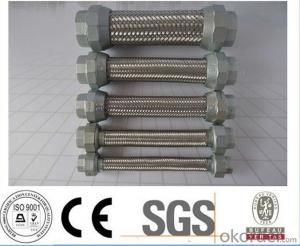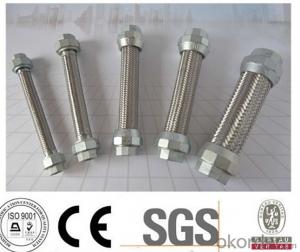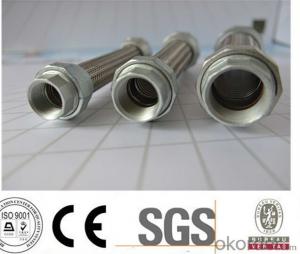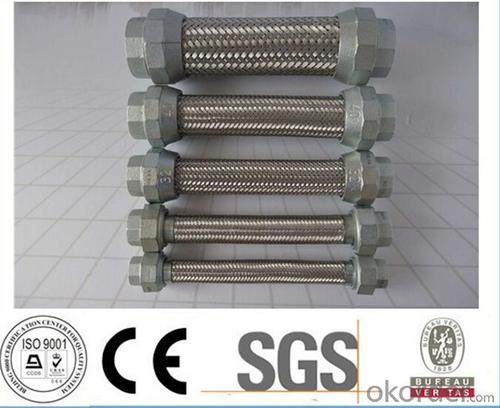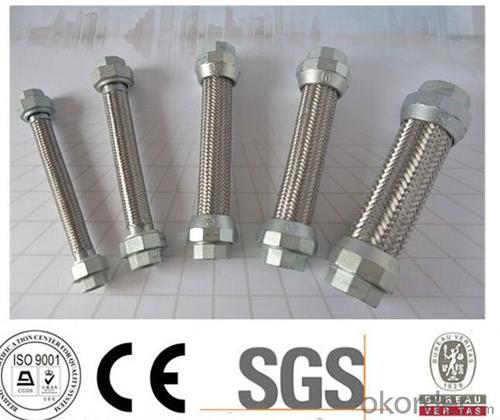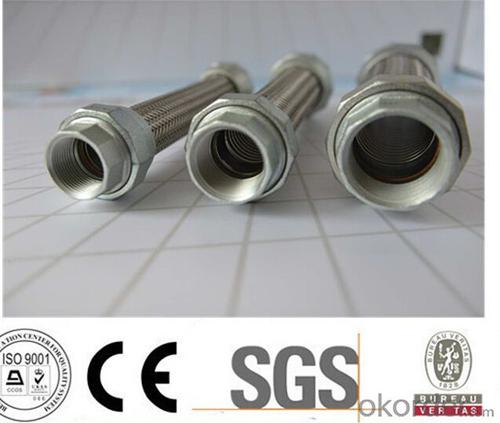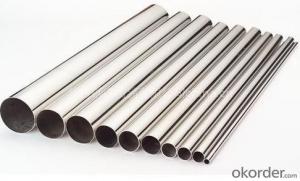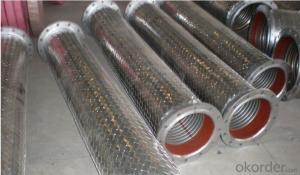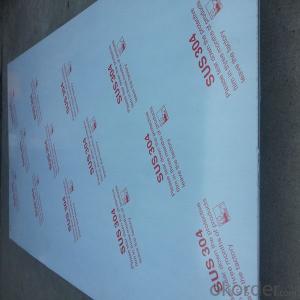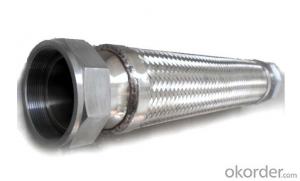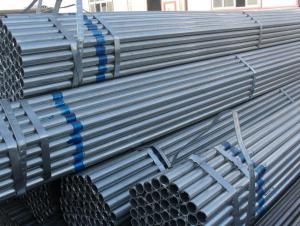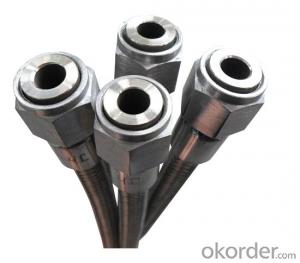Stainless Steel Braid Hose with Flexible Surface
- Loading Port:
- Tianjin
- Payment Terms:
- TT OR LC
- Min Order Qty:
- 10000 pc
- Supply Capability:
- 100000 pc/month
OKorder Service Pledge
OKorder Financial Service
You Might Also Like
Specification
Stainless Steel Braid Hose with Flexible Surface
Applications of Stainless Steel Braid Hose with Flexible Surface:
--Refueling system
--Chemical and pharmaceutical industry
--Industrial hydraulic systems
--Air conditioners in industrial and construction –site vehicles
--Food and beverage industry
--Special and standard industrial applications
--Water and cleaning management
Features of Stainless Steel Braid Hose with Flexible Surface:
1. )O. D.: 13-18MM 0.2-3M long
2. )Nut.: Nickel/Chrome Plated Brass (Zinc / Iron / Aluminum is available)
3. )Size Of Nut.: Female&Male 1/2''; 3/4''; 3/8''; 7/8''; 5/16'', and M10...
4. )Insert.: Brass (Zinc / Aluminum / Plastic is available)
5. )Inner tube.: Rubber/ EPDM/PVC
6. )Covered Material: Stainless Steel 201, 301, 304 /Aluminium Wire
7. )Working Pressure: 5Kg-15Kg
8. )Temperature: 0-92° C
9. )Quality Assurance: 3 years
RemarkAPPLICATION: HOUSEEHOLD WARE, BATHROOM WARE, SHOWER HOSE
PAYMENT: T/T, L/C
DELIVERY TIME: 20DAYS OR 30DAYS AFTER RECEIVED 30% DEPOSITS
MOQ: 5000PCS
ODM&OEM IS ACCEPTABLE
PackageInner: PP bag /Blister packing Outer: Carton box
Specifications of Stainless Steel Braid Hose with Flexible Surface:
NO | I.D | Refer to O.D | Working pressure | Burst pressure | approximate Weight | |||||
(inch) | (mm) | (inch) | (mm) | MPa | Psi | MPa | Psi | kg/m | lbs/ft | |
1 | 1/8 | 3.2±0.2 | 0.35 | 9±0.3 | 2.06 | 300 | 8.27 | 1200 | 0.078 | 0.12 |
2 | 5/32 | 4±0.2 | 0.4 | 10±0.3 | 2.06 | 300 | 8.27 | 1200 | 0.092 | 0.14 |
3 | 3/16 | 4.8±0.2 | 0.43 | 11±0.3 | 2.06 | 300 | 8.27 | 1200 | 0.108 | 0.16 |
4 | 1/4 | 6.3±0.3 | 0.5 | 12.7±0.3 | 2.06 | 300 | 8.27 | 1200 | 0.134 | 0.2 |
5 | 5/16 | 8.0±0.3 | 0.56 | 14±0.3 | 2.06 | 300 | 8.27 | 1200 | 0.147 | 0.22 |
6 | 3/8 | 9.5±0.3 | 0.63 | 16±0.4 | 2.06 | 300 | 8.27 | 1200 | 0.182 | 0.27 |
7 | 15/32 | 12±0.3 | 0.75 | 19±0.5 | 2.06 | 300 | 8.27 | 1200 | 0.238 | 0.35 |
8 | 1/2 | 12.7±0.4 | 0.78 | 20±0.5 | 2.06 | 300 | 8.27 | 1200 | 0.262 | 0.39 |
9 | 5/8 | 16±0.4 | 0.94 | 24±0.5 | 1.03 | 150 | 4.12 | 600 | 0.351 | 0.52 |
10 | 3/4 | 19±0.4 | 1.13 | 28.8±0.5 | 1.03 | 150 | 4.12 | 600 | 0.515 | 0.77 |
11 | 1 | 25.4±0.5 | 1.38 | 35±0.6 | 1.03 | 150 | 4.12 | 600 | 0.637 | 0.95 |
Images of Stainless Steel Braid Hose with Flexible Surface:
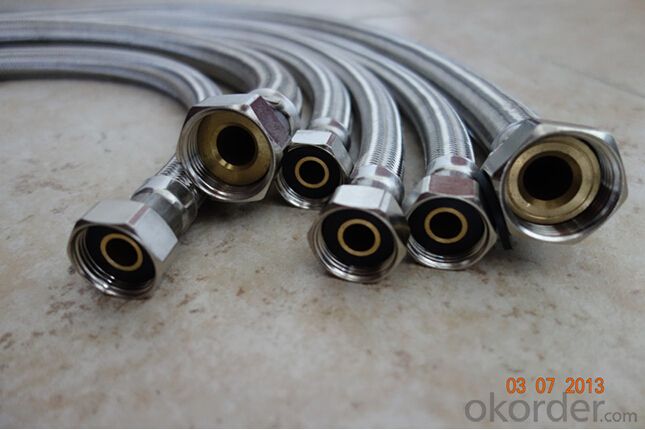
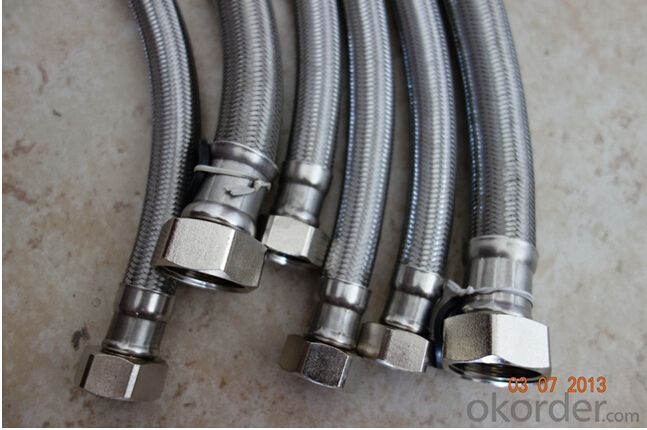
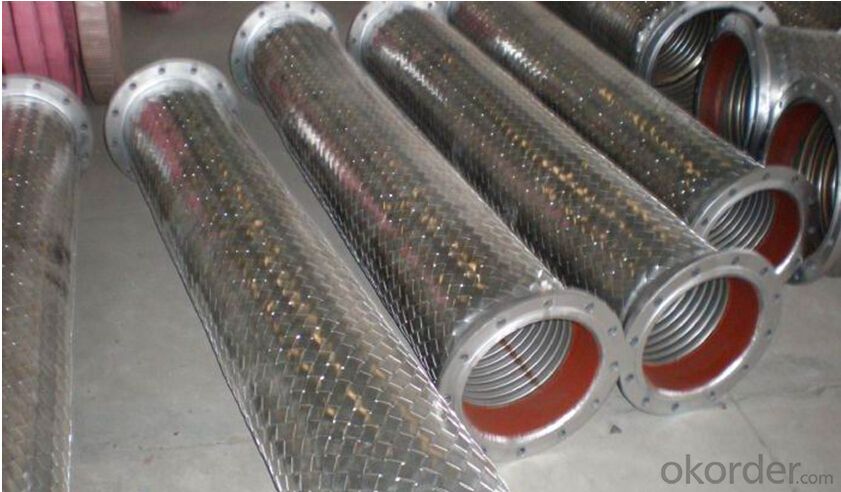
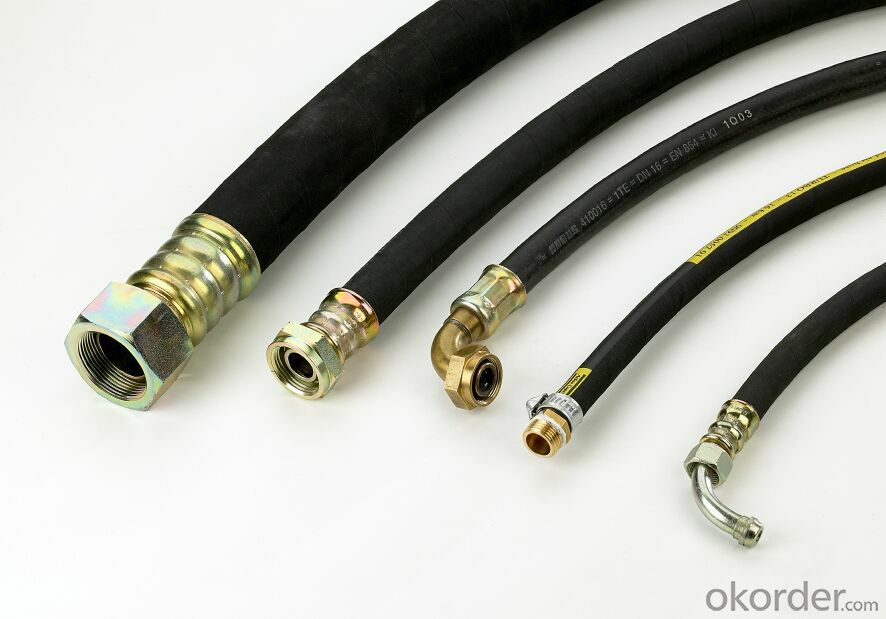
Package of Stainless Steel Braid Hose with Flexible Surface:
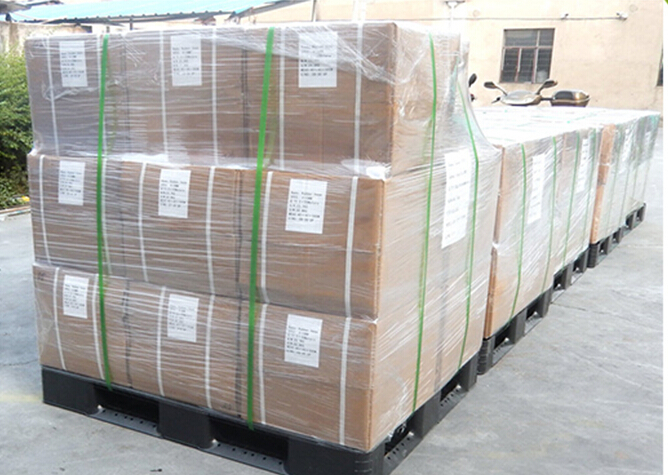
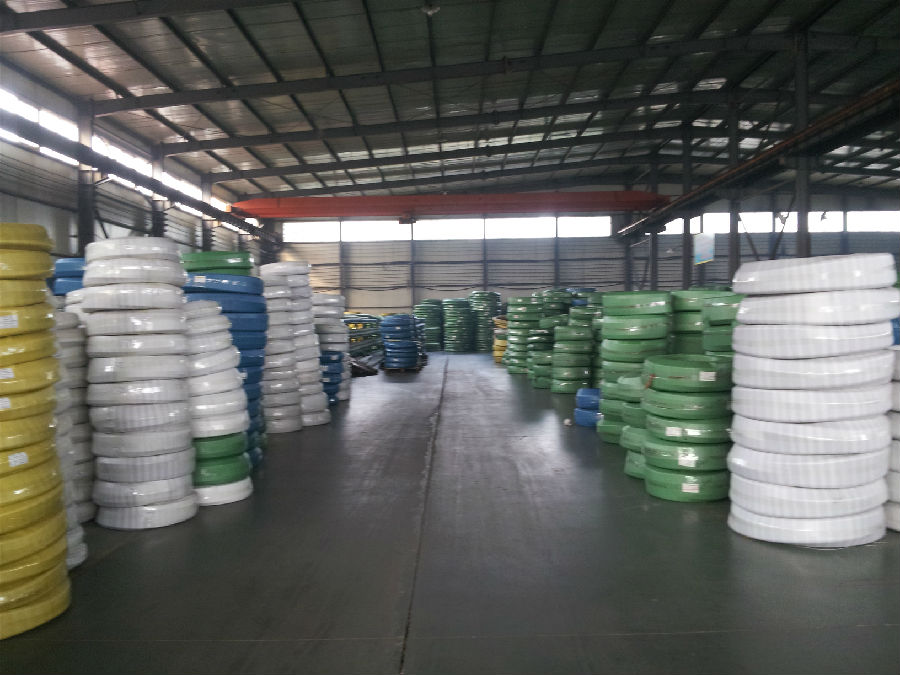
FAQ of Stainless Steel Braid Hose with Flexible Surface:
Who we are:
Answer: We CNBM is a Chinese state-owned enterprise ranked 267th among the Global Fortune 500, as the largest building materials company,we have over 300 affiliated companies,and so many production lines and branch office distribute in China.
2. About our quality:
Answer: Every product needs to be quality proved before shipping.
3. About our service:
Answer: We could gurantte that we can reply you in 2 working hours.
- Q: Can stainless steel pipes be used for dairy industries?
- Yes, stainless steel pipes can be used for dairy industries. Stainless steel is a popular choice for piping in dairy industries due to its many desirable properties. Stainless steel pipes are corrosion-resistant, which is crucial in the dairy industry where exposure to acids and other corrosive substances is common. They are also easy to clean and maintain, which is important for maintaining hygienic conditions in dairy processing plants. Additionally, stainless steel pipes are non-reactive, meaning they do not interact with the dairy products and alter their taste or quality. Furthermore, stainless steel pipes have high strength and durability, making them suitable for the high-pressure and high-temperature conditions often found in dairy processing. Overall, stainless steel pipes are a reliable and efficient choice for the dairy industry.
- Q: What are the standard sizes for stainless steel pipes?
- The standard sizes for stainless steel pipes vary depending on the application and industry. However, commonly used standard sizes range from 1/8 inch to 24 inches in diameter, with wall thicknesses ranging from Schedule 5S to Schedule XXS.
- Q: What are the different types of stainless steel pipe finishes?
- Stainless steel pipes come in various finishes, each offering a distinct look and level of protection against corrosion. 1. The mill finish is the standard and least flashy option for stainless steel pipes fresh from the mill. Its surface is dull and lacks reflectivity, making it suitable for applications where appearance is not a priority. 2. The brushed finish, also known as satin finish, involves brushing the surface of the stainless steel pipe with a fine abrasive material. This creates a consistent linear grain pattern, giving the pipe a smooth and sophisticated appearance. 3. The mirror finish is achieved by polishing the stainless steel pipe to a highly reflective surface. It is often used in decorative applications, such as handrails and architectural elements, where a shiny and visually pleasing look is desired. 4. The polished finish is similar to the mirror finish, but it does not achieve the same level of reflection. It involves buffing the surface of the stainless steel pipe to a high shine. This makes it more suitable for industrial or commercial applications. 5. The satin finish, a type of brushed finish, has a low sheen and smooth texture. It provides a subtle and elegant appearance, commonly used in applications where a matte finish is preferred, like kitchen appliances or automotive parts. 6. The bead blasted finish is accomplished by subjecting the surface of the stainless steel pipe to high-pressure bombardment with small glass beads. This creates a uniform and non-directional texture, giving the pipe a frosted and matte look. The bead blasted finish is often used in architectural and decorative applications. These different stainless steel pipe finishes offer their own advantages and are selected based on specific requirements, such as aesthetics, corrosion resistance, and ease of maintenance.
- Q: What are stainless steel pipes used for?
- Stainless steel pipes are widely used in various industries for their exceptional durability, corrosion resistance, and high strength. They find extensive applications in plumbing systems, oil and gas industries, chemical processing plants, food and beverage processing, pharmaceutical industries, and automotive manufacturing, among others. In plumbing systems, stainless steel pipes are favored for their ability to withstand high pressure and temperature, making them suitable for transporting water, gas, and other fluids. They are also commonly used in sewage and drainage systems due to their resistance to corrosion and chemical substances. In the oil and gas industries, stainless steel pipes are used for transporting petroleum products, natural gas, and other fluids under high pressure and extreme temperatures. Their corrosion resistance properties make them indispensable in offshore and onshore drilling operations, refineries, and petrochemical plants, ensuring the safe and efficient transportation of these substances. Chemical processing plants rely on stainless steel pipes for their resistance to chemical reactions and high temperatures. They are used to transport various corrosive chemicals and gases without the risk of contamination or leakage. Additionally, stainless steel pipes are utilized in heat exchangers, reactors, and other equipment that require corrosion-resistant materials. The food and beverage industry also heavily relies on stainless steel pipes due to their hygiene and sanitary properties. They are used for conveying various food products, such as milk, wine, beer, and other liquids, without altering their taste or quality. Stainless steel pipes are easy to clean, maintain, and sterilize, making them ideal for this industry. In the pharmaceutical sector, stainless steel pipes play a crucial role in conveying various drugs, chemicals, and sterile fluids. They meet the stringent requirements of the industry by ensuring product purity, preventing contamination, and offering resistance to corrosion and temperature extremes. Moreover, stainless steel pipes are utilized in automotive manufacturing for their structural strength and resistance to heat and corrosion. They are used in exhaust systems, fuel lines, and other components where durability and resistance to extreme conditions are necessary. Overall, stainless steel pipes are versatile and essential in numerous industries, providing the perfect combination of strength, durability, and corrosion resistance needed for a wide range of applications.
- Q: Are stainless steel pipes suitable for dairy applications?
- Yes, stainless steel pipes are highly suitable for dairy applications. Stainless steel is a preferred material in the food and beverage industry due to its excellent corrosion resistance and hygienic properties. It is non-reactive with dairy products and does not impart any taste or odor, ensuring the quality and purity of the milk or other dairy products being transported. Additionally, stainless steel pipes are easy to clean and maintain, which is crucial in dairy applications where cleanliness and sanitation are of utmost importance. The smooth surface of stainless steel pipes also prevents the accumulation of bacteria, further ensuring the safety and quality of the dairy products. Hence, stainless steel pipes are the ideal choice for dairy applications, providing a reliable and hygienic solution for transporting milk and other dairy products.
- Q: How do stainless steel pipes compare to polyvinyl chloride pipes?
- Stainless steel pipes and polyvinyl chloride (PVC) pipes are two popular options for plumbing and other industrial applications. They have distinct characteristics and advantages, making them suitable for different purposes. Firstly, stainless steel pipes are known for their exceptional durability and strength. They are highly resistant to corrosion, rust, and extreme temperatures, making them ideal for harsh environments and outdoor applications. Additionally, stainless steel pipes have a long lifespan and require minimal maintenance, reducing replacement and repair costs over time. On the other hand, PVC pipes are lightweight and easy to install, making them a cost-effective option for both residential and commercial plumbing systems. They are resistant to chemicals and offer good insulation properties. PVC pipes are also non-conductive, making them suitable for electrical applications. Moreover, PVC pipes are typically less expensive than stainless steel pipes, which can be a determining factor for budget-conscious projects. Another crucial aspect to consider is the environmental impact. Stainless steel pipes are fully recyclable, making them an environmentally friendly choice. PVC pipes, however, can pose environmental concerns due to the use of chlorine during production and the difficulty in recycling. Ultimately, the choice between stainless steel pipes and PVC pipes depends on various factors, such as the specific application, budget, durability requirements, and environmental considerations. While stainless steel pipes excel in terms of durability and resistance, PVC pipes are cost-effective and easy to install. It is essential to evaluate the needs of the project and consult with professionals to determine the most suitable option for each specific case.
- Q: How is stainless steel pipe different from carbon steel pipe?
- Stainless steel pipe and carbon steel pipe find their usage in different industries due to their varying compositions, corrosion resistance, and price points. To begin with, stainless steel pipe consists of an iron alloy containing a minimum of 10.5% chromium. This addition of chromium forms a protective layer of chromium oxide on the pipe's surface, greatly enhancing its resistance to corrosion. Conversely, carbon steel pipe primarily comprises iron and carbon, lacking any additional alloying elements. This absence of alloying elements renders carbon steel pipe more susceptible to corrosion, particularly when exposed to moisture or harsh environments. Moving on, stainless steel pipe exhibits high resistance to corrosion and rust, making it suitable for applications requiring endurance against harsh conditions or exposure to corrosive substances. On the other hand, carbon steel pipe is more prone to corrosion and may necessitate additional protective coatings or treatments to prevent rusting. Lastly, the price of stainless steel pipe generally surpasses that of carbon steel pipe. This disparity in cost stems from the additional chromium content and the superior corrosion resistance provided by stainless steel. Carbon steel pipe, being a more basic and prevalent material, is generally more cost-effective and readily available. In conclusion, the significant disparities between stainless steel pipe and carbon steel pipe lie in their composition, corrosion resistance, and price. Stainless steel pipe offers superior corrosion resistance and durability, making it an ideal choice for applications where corrosion is a concern. Carbon steel pipe, while less resistant to corrosion, is more affordable and widely employed across various industries. Ultimately, the selection between these two types of pipes hinges on the specific requirements, budget, and environmental conditions of the intended application.
- Q: What is the tensile strength of stainless steel pipes?
- The tensile strength of stainless steel pipes can vary based on the specific grade and composition of the steel. However, stainless steel is renowned for its high tensile strength, making it a popular choice for various applications that demand sturdy and long-lasting pipes. On average, stainless steel pipes possess a tensile strength that falls within the range of 500 to 1500 megapascals (MPa). Thanks to this remarkable tensile strength, stainless steel pipes can endure substantial pressure and stress, rendering them suitable for utilization in industries like construction, oil and gas, chemical processing, and automotive manufacturing. It is worth noting that the precise tensile strength of stainless steel pipes can be influenced by factors such as the manufacturing process, heat treatment, and any additional alloying elements present in the steel. Consequently, referring to the specific technical specifications or standards for the particular grade of stainless steel pipes is crucial in order to ascertain their exact tensile strength.
- Q: Are stainless steel pipes resistant to chlorine corrosion?
- Stainless steel pipes have a general resistance against chlorine corrosion. The corrosion resistance of stainless steel is widely acknowledged, especially when it comes to chlorine and chlorinated water. This is because stainless steel contains high levels of chromium, which generates a protective oxide layer on the metal's surface. This layer acts as a barrier, shielding the stainless steel from the corrosive effects of chlorine. Nonetheless, it is crucial to consider that the degree of resistance to chlorine corrosion can vary based on the specific grade of stainless steel employed. Thus, it is vital to carefully choose the appropriate stainless steel grade that is specifically designed to withstand chlorine corrosion when utilizing stainless steel pipes in applications involving chlorinated water or chlorine-rich environments.
- Q: Can stainless steel pipes be fabricated?
- Indeed, it is possible to fabricate stainless steel pipes. Stainless steel possesses remarkable versatility, enabling it to be effortlessly manipulated and formed into different dimensions and configurations. By employing fabrication techniques like cutting, bending, welding, and threading, stainless steel pipes can be tailored to meet specific demands. These pipes find application across a wide range of industries, encompassing construction, automotive, oil and gas, plumbing, and more. The corrosion resistance and durability inherent in stainless steel render it a perfect candidate for fabricating pipes that must endure rigorous environmental circumstances.
Send your message to us
Stainless Steel Braid Hose with Flexible Surface
- Loading Port:
- Tianjin
- Payment Terms:
- TT OR LC
- Min Order Qty:
- 10000 pc
- Supply Capability:
- 100000 pc/month
OKorder Service Pledge
OKorder Financial Service
Similar products
Hot products
Hot Searches
Related keywords
